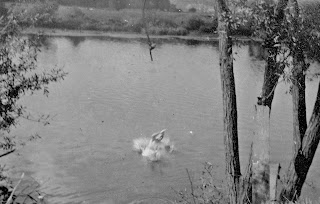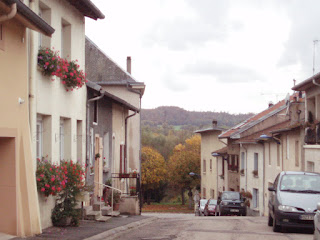Friday, August 30, 1918:
Jack Swain has been awarded the D.S.C. making three now in our section to receive this citation out of the five awarded to the whole American Ambulance service in France. Tod Gillett of course got the cross for what he was attempting to do when he was killed; Jack got his for trying to rescue Tod under heavy barrage before he was further mutilated; Leo McGuire got his for his brilliant work in the Seicheprey affair when his car was shot out from in under him and he reported in to headquarters later asking for another car with which to return to this post.
News from the west is most encouraging. Noyon, Ham, Bapaume are the principal cities now in our hands since day before yesterday. Péronne will probably be captured today.
Had a delightful swim in the Moselle this P.M. Rather cold, but refreshing. Dunlap, Swain, Kirkpatrick, Johnnie Taylor, Rority, Anderson and myself. Swell diving-board and swing.
No mail! None for two weeks.













